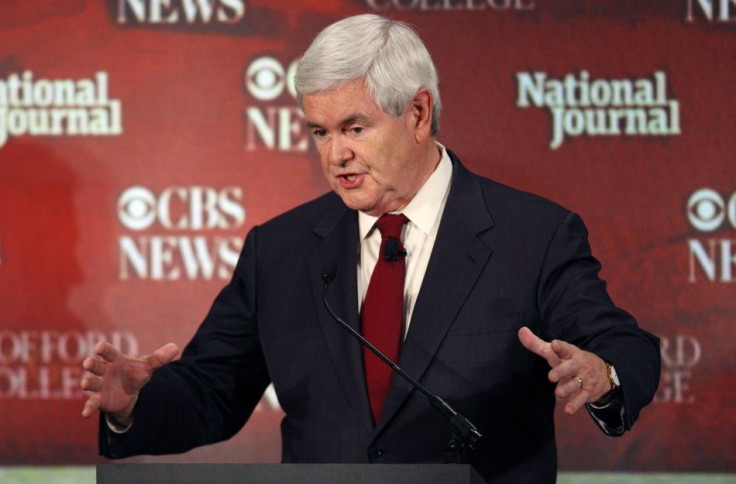Both Friend and Foe of Freddie Mac, Newt Gingrich Surges to the Head of the Line in Republican Race: Poll

Presidential candidate Newt Gingrich has roared into the lead of the Republican nominating race, brushing off concerns about his work for a troubled housing company, a Reuters/Ipsos poll showed.
Twenty-four percent of registered Republican voters would support the former speaker of the U.S. House of Representatives if the contest were held now, an increase of 8 percentage points from roughly a week ago, according to the poll, which was conducted Nov. 18-19.
Mitt Romney, the former Massachusetts governor who has stayed near the top of most polls, garnered support from 22 percent of Republicans, slumping 6 percentage points from the last survey conducted on Nov. 10-11 and ending up essentially tied with Gingrich.
Despite allegations of questionable business ties, Gingrich is the latest favorite of conservative Republicans eager for an alternative to Romney, whom they see as too moderate.
Support for Herman Cain, a previous front-runner, is crumbling after sexual-harassment allegations. The former pizza-company executive dropped 8 percentage points in the poll from last week and fell back into third place. Support for him has halved since late last month.
In a sign of further relief for Gingrich, 46 percent of Republicans said the revelations that he had received as much as $1.8 million in consulting fees from mortgage giant Freddie Mac had no impact on their view of the candidate.
Thirty-one percent said the issue left them with a less favorable opinion of Gingrich, who has criticized Freddie Mac sharply in the past.
We have absolutely seen Gingrich surge, said Ipsos pollster Julia Clark, noting that the former House leader from the 1990s was a more established political figure than some of his Republican counterparts who have slipped in the polls.
Because he is established, this makes him much more well protected from damage resulting from the Freddie connection, she said.
A Fox News poll released on Wednesday also showed Gingrich ahead. However, that survey was conducted before the Freddie Mac connection and other news stories about his business ties had fully played out.
Support for Cain and Texas Gov. Rick Perry fell in the Reuters/Ipsos poll. Cain came in with 12 percent support and Perry, who has performed poorly in a series of televised debates, was in fourth place with 10 percent.
Romney Omnipresent
Although Romney lost sizable support since last week's poll, 42 percent of Republicans still believe he will eventually win the nomination and go on to face President Barack Obama in next year's election, compared to 19 percent who think Gingrich will prevail in the Republican race.
Julian Zelizer, a Princeton University history professor who follows politics, said Gingrich's high ratings were likely to drop.
Gingrich comes to this chaotic campaign with tons of baggage. In this media environment, it is likely that his numbers will fall soon, Zelizer said.
Romney has played it well, slow and steady. He is a known commodity and thus far none of his issues and background has caused a huge drop.
Gingrich and Romney were basically tied among second-choice candidates. Asked who they would vote for if their first-choice candidate dropped out, 19 percent of Republicans chose Gingrich, compared with 18 percent who went with Romney.
Gingrich, whose campaign was nearly written off as dead this year after a defection of staff, has expressed surprise at his quick ascent.
The candidate denies having lobbied for Freddie Mac. Thirty-seven percent of Americans believe he did lobby on behalf of the mortgage giant, while 20 percent believe he did not, the poll showed.
The poll also asked respondents to ascribe attributes to the leading candidates. Thirty-three percent of Republicans viewed Romney and Gingrich as honest, and 18 percent described them both as hypocritical. Fifty-five percent said Gingrich was smart; 54 percent said the same of Romney.
The online survey of 1,432 Americans aged 18 and over included 423 Republican registered voters. Statistical margins of error are not applicable to online polls, but the poll has a credibility interval of plus or minus 5.3 percent.
(Editing by Alistair Bell and Christopher Wilson)
© Copyright Thomson Reuters 2024. All rights reserved.





















